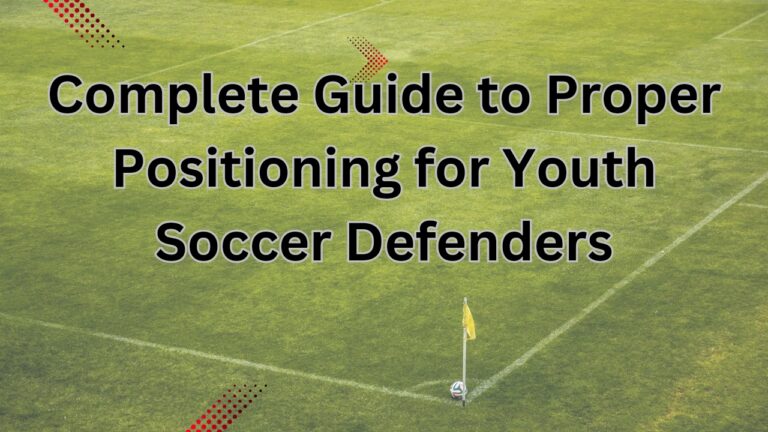We all face criticism at some point in our lives. Learning to handle it healthily and not let it affect your self-confidence and mental strength is key. This article will provide actionable tips on constructively dealing with criticism and building resilience.
Tip 1. Don’t Take Criticism Personally
Criticism can feel like a personal attack, but it’s important not to take it to heart. When someone provides critical feedback, they are often making a statement about themselves and their perceptions, not about their worth as a person. Their words likely say more about their mindset and motives than your own merits and actions.
Rather than absorbing criticism as a negative reflection on you, aim to detach yourself from it emotionally. This starts with recognizing that no one is perfect – we all have room for improvement. Criticism can provide an opportunity for growth if you have the mental toughness to not let it erode your self-confidence.
Here are some tips to avoid taking criticism personally:
- Remember that criticism often stems from the other person’s subjective perspective or needs. Try not to automatically accept their judgments as facts.
- Consider the source. Is the feedback coming from someone hostile, competitive, or has ulterior motives? Then it likely deserves little weight.
- Recognize your worth. Base your self-image on your core values and integrity, not others’ changing opinions.
Maintaining perspective and detachment from criticism is key to keeping it from affecting your mental toughness and emotional resilience. With practice, you can learn to let critical comments roll off your back while filtering any useful nuggets.
Tip 2. Learn From the Feedback
Though criticism shouldn’t be taken to heart, that doesn’t mean there is never any truth to it. If the criticism has validity, own it. Be willing to learn something that can help you improve.
Even professional athletes with elite skills watch game films and listen to coaches’ critiques to get better. Similarly, avoid dismissing all critical feedback out of hand.
Ask yourself if the criticism reveals an area where you can develop greater skills, awareness, or competence. However, you first need to determine if the feedback seems intended to help you grow. Look out for these signs; it may be worth heeding:
- It is specific and detailed, not vague generalities.
- It focuses on actions or behavior, not character assassinations.
- The source seems to have good intentions, not anger or jealousy.
- It is aligned with other feedback you have received.
Mentally separate useful insights from toxic or biased criticism. If some feedback rings true, here are productive ways to respond:
- Express appreciation for their perspective and willingness to share it.
- Acknowledge you see their point and will consider it.
- Share your thoughts to add context, but avoid defensiveness.
- If appropriate, offer to make amends or improve moving forward.
- Implement any beneficial changes but don’t obsess over pleasing your critic.
The ability to humbly learn from critics without losing self-confidence is a hallmark of mental toughness.
Tip 3. Communicate Your Perspective
When faced with criticism that seems misguided, resist the urge to just get defensive. You can acknowledge the feedback while tactfully presenting your point of view.
First, hear the critics out fully and try to understand where they are coming from. Ask clarifying questions if needed. Simply allowing them to vent may sometimes diffuse the situation.
Next, respond thoughtfully but firmly. The key is maintaining poise and professionalism. Here are some communication tips:
- Thank them for sharing their concerns, but don’t apologize or admit fault if you disagree.
- Calmly explain the situation from your perspective. Provide any new context the critic may be missing.
- If there is a misunderstanding or information gap, now is the time to close it.
- Note that you have given their viewpoint consideration but have reached a different conclusion.
- Suggest agreeing to disagree if your perspectives still diverge.
- Reiterate any areas of common ground and your desire to maintain a constructive relationship.
Even if the criticism remains unwarranted, communicating maturely often earns more respect than lashing back defensively. It also gives the critic far less power over you and your emotional state.
Tip 4. Surround Yourself with Supportive People
It’s easy to get bogged down mentally rehashing criticism or trying to disprove it. That’s why surrounding yourself with positive people who uplift you is so important after receiving criticism.
Seek out trusted mentors, friends, and family who know your worth. Ask them to remind you of your talents, character, and past successes. Their affirmation can be an antidote to the sting of unfair criticism.
A few other ways a strong support system can help:
- Provide reality checks when criticism has you second-guessing yourself.
- Listen without judgment and offer reassurance.
- Suggest constructive responses rather than fueling bitterness.
- Share objective feedback, but emphasize your strengths and resilience.
Conversely, limit contact with consistently negative or toxic people who undermine your confidence. Their excessively critical perspective can erode your self-esteem if you aren’t careful. Politely but firmly let them know their excessive negativity is not constructive for you.
Carefully choosing who to open up to after criticism can make all the difference. Opt for supporters who emphasize the positive.
Tip 5. Cultivate Unshakable Self-Worth
The root of handling criticism with resilience comes down to cultivating rock-solid self-esteem and confidence in your worth. This mental toughness needs constant nurturing.
Make developing unshakable self-belief a daily practice. Here are some proven ways:
- Identify your core values and connect with what gives your life meaning. Let those be your foundations.
- Foster positive self-talk and affirmations to drown out inner critics.
- Celebrate your skills, talents, and accomplishments rather than dwelling on flaws.
- Pursue personal growth goals that help you become who you wish to be.
- Focus on making a difference for others through your unique abilities.
- Be your own biggest cheerleader – don’t outsource self-esteem.
With time, these practices make criticism bounce off you rather than penetrate within. Stay grounded in who you are, not what others say about you.
One occasional criticism won’t make a dent if your sense of self-worth comes from within. You’ve got this!
Conclusion
Dealing with criticism is an inevitable part of life. While no one enjoys being criticized, how you respond to it says far more about you than the criticism itself. By taking some constructive approaches, you can maintain unwavering mental toughness and self-confidence despite critics.
The key is to not allow criticism to erode your self-worth. Separate objective feedback that helps you improve from subjective negativity. Communicate calmly when the criticism seems misguided. Find supportive people who can provide reality checks and lift you. Most importantly, base your mindset on your inner values and passions, not external voices.
Related Post: 5 Goal Setting Tips to Achieve Soccer Success Through Mental Preparation
Author






